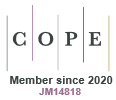Corrigendum to: Using global navigation satellite system data for real-time moisture analysis and forecasting over the Australian region I. The system
John Le Marshall, Robert Norman, David Howard, Susan Rennie, Michael Moore, Jan Kaplon, Yi Xiao, Kefei Zhang, Carl Wang, Ara Cate, Paul Lehmann, Xiaoming Wang, Peter Steinle, Chris Tingwell, Tan Le, Witold Rohm and Diandong Ren
Journal of Southern Hemisphere Earth Systems Science
70(1) 394 - 394
Published: 17 December 2020
Abstract
The use of high spatial and temporal resolution data assimilation and forecasting around Australia’s capital cities and rural land provided an opportunity to improve moisture analysis and forecasting. To support this endeavour, RMIT University and Geoscience Australia worked with the Bureau of Meteorology (BoM) to provide real-time GNSS (global navigation satellite system) zenith total delay (ZTD) data over the Australian region, from which a high-resolution total water vapour field for SE Australia could be determined. The ZTD data could play an important role in high-resolution data assimilation by providing mesoscale moisture data coverage from existing GNSS surface stations over significant areas of the Australian continent. The data were used by the BoM’s high-resolution ACCESS-C3 capital city numerical weather prediction (NWP) systems, the ACCESS-G3 Global system and had been used by the ACCESS-R2-Regional NWP model. A description of the data collection and analysis system is provided. An example of the application of these local GNSS data for a heavy rainfall event over SE Australia/Victoria is shown using the 1.5-km resolution ACCESS-C3 model, which was being prepared for operational use. The results from the test were assessed qualitatively, synoptically and also examined quantitatively using the Fractions Skills Score which showed the reasonableness of the forecasts and demonstrated the potential for improving rainfall forecasts over south-eastern Australia by the inclusion of ZTD data in constructing the moisture field. These data have been accepted for operational use in NWP.https://doi.org/10.1071/ES19009_CO
© BoM 2020

